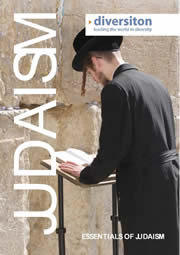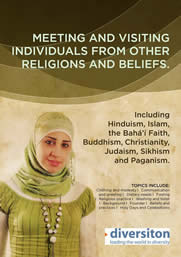Worship
For judaism life is a religious ceremony in itself.
The emphasis on the detailed code of conduct and the following of each individual and community of these codes is a form of daily worship. Therefore, all of life is a liturgy (public worship).
Orthodox, Conservative and Reform Jews are in agreement that life should be seen as a ritual to honour the Creator. The difference lies in what the definition of the word “ritual” should be.
For the Orthodox tradition, there is a heavy emphasis on the precise recitation of specific prayers in specific situations. According to the Torah, there are specific prayers for waking and before eating for example.
For the Conservative Jew, the approach to worship is less formal than the Orthodox, but it is still guided by tradition. The Conservative holds to the view that ritual is an expression of values like loving God and helping others. Ritual is not particularly a commitment to make specific prayers for every conceivable situation.
For Reform Jews, the practicing of some specific forms of daily religious worship does not have to be found in scripted responses to daily activities.
It would be impossible to speak about Judaism without mentioning the Jewish Dietary Laws. The adherence to these food laws are another form of worship for the Jew. The rules were set out in the Hebrew Bible. Kosher (that which is in accordance with the established standard of Jewish ritual) Food laws are broadly:
- Kosher meat comes from an animal that chews a cud and has cloven hoofs (sheep and cows for example). The meat must be killed in accordance to special rules and the meat must be prepared in such a way that all blood is removed.
- Seafood is Kosher if the animals have scales or fins.
- Poultry is kosher if it follows the special rules of slaughter and preparation.
- It is prohibited to consume dairy products at the same time or shortly after a meal which included meat products.
- Separate utensils are required for dairy and non-dairy meals.
Synagogues are the names of the Jewish places of worship. Group prayer is extremely important. The prayers vary depending on the hour of the day, the day of the month and the branch of Judaism. During services Jewish males are required to wear yarmulke (small headpieces).
The Jewish holy day is called the Shabbat (repose). The Shabbat begins at sunset on Friday and continues until nightfall on Saturday. Work is prohibited during the Shabbat. On the Shabbat prayer services are more detailed for all branches of Judaism – Friday services can be anywhere from half an hour to an hour and a half; and Saturday morning services can be as long as three hours.
The sacred language of Judaism is Hebrew. Hebrew would be used the most in an Orthodox service, while it would be used the least in Reform one. It is Jewish tradition that a communal service requires something called a minyan (or quorum) of at least 10 adults. For Orthodox Jews, this quorum must consist of 10 men and the men and women sit separately.
Services are conducted by Rabbis (Jewish scholar or teacher) and a cantor sings and leads the congregation in song. Essentially a service consists of three parts:
- Amidah. Grateful salutations and prayers to praise God.
- Sh’ma. The pledge of faith.
- A public reading of a passage of the Torah.



